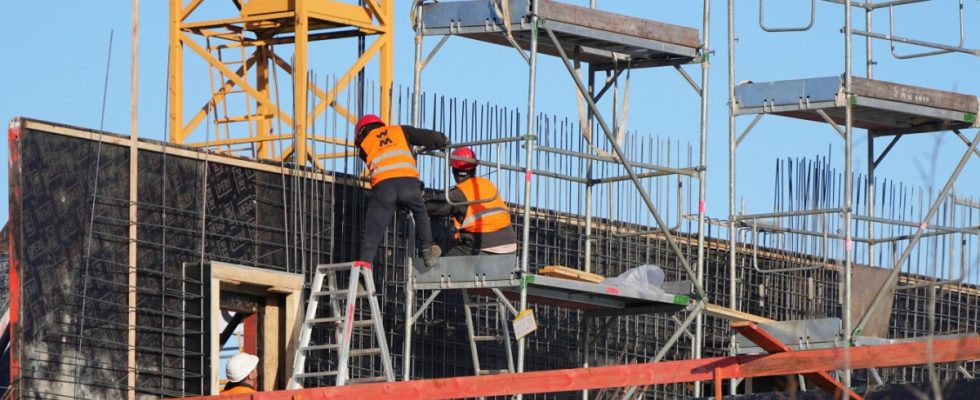The rise in prices for the construction of new houses in Germany has slowed down. The new construction of conventionally manufactured buildings rose in May by 8.8 percent compared to the same month last year, the Federal Statistical Office announced on Monday in its quarterly evaluation. Last February there was an increase of 15.1 percent. From February to May, construction prices increased by 0.8 percent.
The Ifo Institute also expects a sharp decline in residential construction due to the increased costs. The Munich researchers predict that only around 245,000 apartments in new buildings will be completed this year and only 210,000 in 2024. In 2025 – together with the other completions – there should only be around 200,000 residential units. That would only be half the target set by the federal government.
“The most important reason for the decline is the significant increase in the cost of financing and construction work,” said Ifo construction expert Ludwig Dorffmeister. “At the same time, the federal government has drastically cut back new construction subsidies and tightened the standards for new construction again at the beginning of 2023.” Structural work on residential buildings cost 5.4 percent more in May than a year earlier. For masonry work, prices rose by 7.4 percent. They increased by 10.8 percent for roofing work and by 9.4 percent for earthwork. Carpentry and timber construction work, on the other hand, became cheaper by 2.7 percent. The prices for finishing work increased by 11.7 percent, for heating and central water heating systems by 14.9 percent.
The cost of constructing new office buildings also rose in May, by 9.0 percent compared to the same month last year. The increase in commercial buildings was 8.0 percent and in road construction 10.5 percent. Maintenance work on residential buildings cost 11.7 percent more than in May 2022.
According to the real estate association GdW, affordable housing is becoming increasingly difficult. It was said that an unprecedented crisis was looming. The association represents around 3,000 housing companies and cooperatives, which together manage around six million apartments in Germany. Above all, the increased interest rates, inflation and the long-term effects of the corona pandemic were causing problems for the industry, it was said, and there were also strict political requirements for more climate protection. “Under the current political and economic conditions,” companies “can no longer invest in affordable housing,” said GdW President Axel Gedaschko.

